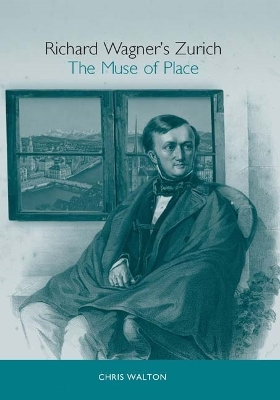When the people of Dresden rose up against their king in May 1849, Richard Wagner went from Royal Kapellmeister to republican revolutionary overnight. He gambled everything, but the rebellion failed, and he lost all. Now a wantedman in Germany, he fled to Zurich. Years later, he wrote that the city was "devoid of any public art form" and full of "simple people who knew nothing of my work as an artist." But he lied: Zurich boasted arguably the world's greatest concentration of radical intellectuals and a vibrant music scene. Wagner was accepted with open arms. This book investigates Wagner's affect on the musical life of the city and the city's impact on him. Mathilde Wesendonck emerges not as Wagner's passive muse but as a self-assured woman who exploited gender expectations to her own benefit. In 1858, Wagner had to flee Zurich after again gambling everything -- this time on Mathilde -- and again losing.But it was in Zurich that Wagner wrote his major theoretical works; composed Das Rheingold, Die Walkure, and parts of Siegfried and Tristan und Isolde; first planned Parsifal; held the first festival of his music; and conceived of a theater to stage his own works. If Wagner had been free in 1849 to choose a city in which to seek heightened intellectual stimulation among the like-minded and the similarly gifted, he could have come to nomore perfect place.
Chris Walton teaches music history at the Musikhochschule Basel in Switzerland. He is the recipient of the 2010 Max Geilinger Prize honoring exemplary contributions to the literary and cultural relationship between Switzerland and the English-speaking world.
- ISBN10 1571133313
- ISBN13 9781571133311
- Publish Date 1 September 2007
- Publish Status Active
- Publish Country US
- Publisher Boydell & Brewer Ltd
- Imprint Camden House Inc
- Format Hardcover
- Pages 310
- Language English
